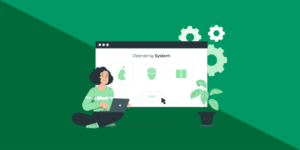How Digital Learning Platforms Are Changing Exam Preparation
In the up-to-date age of education, technology has entirely redesigned how students formulate for examinations. Left are the days of old-style study procedures filled with handwritten notes and late-night reading room gatherings. Instead, digital learning platforms have developed as authoritative tools that make studying more modified, flexible, and active. Whether you are a student attempting university courses or a proficient preparing for certification examinations, platforms considered for digital learning platforms exam prep are converting how achievement is accomplished.
This shift is not just a matter of suitability—it’s a worldwide educational revolution. Through virtual learning platforms for exams, students gain access to skilled resources, real-time analytics, practice assessments, and collaborative tools that create a more attractive and computable study knowledge.
Let’s discover how these advanced platforms are redefining exam preparation and allowing learners to influence their completist potential.
The Progression of Exam Preparation in the Digital Age
Before the growth of technology, exam preparation depended severely on physical materials—textbooks, notebooks, and in-person study conferences. While these approaches are still appreciated, they need flexibility and real-time improvement.
Today, the appearance of online study platforms for tests has transformed this outdated tactic. Digital tools now allow students to learn from everyplace, access recorded lectures, and contribute to live debates. The outline of AI, cloud computing, and big data in education has made exam preparation more scientific and outcome-driven.
Key benefits of this progress include:
- Immediate admittance to updated learning materials
- Replicated testing situations reflecting real examinations
- Personalized feedback and adaptive learning paths
- 24/7 convenience for self-paced learning
This development has turned studying into a collaborative and data-backed process, making exam preparation cleverer and more well-organized.
The Role of Technology in Modern Exam Preparation
Technology has complete exam preparation more collaborative, smart, and results-oriented. Tools like AI-based tutors, virtual simulations, and gamified quizzes help learners engage info faster and keep in mind it longer.
With digital learning platforms exam prep, scholars can track their growth in real time and receive comprehensive analytics on presentation. This helps them recognize weak areas, assign study time cleverly, and progress efficiency.
Modern features include:
- AI-based adaptive knowledge: Platforms scrutinize user performance and adjust question trouble consequently.
- Gamified learning modules: Earning points and badges keeps students inspired.
- Virtual whiteboards and simulations: Allow practical learning, especially for subjects like science and math.
- Real-time performance dashboards: Provide visions into strong points and weaknesses.
Such technology-driven features transform learning into a self-motivated process rather than an inactive experience.
Personalized Learning: The Main of Digital Exam Preparation
One of the most powerful features of virtual learning platforms for exams is personalization. No two learners are the same, and technology identifies that by tailoring study plans according to an individual’s pace and expertise.
Personalized tools include:
- Problem-solving tests that regulate a learner’s primary level
- Custom study agendas created on goals and timelines
- AI recommendations for areas requiring improvement
- One-on-one mentorship concluded digital communication tools
This data-driven method confirms that students spend more time establishing their weak areas rather than wasting time revisiting topics they already appreciate.
Convenience and Litheness in Online Exam Preparation
One of the worst disadvantages of a digital platform for exams is convenience however. Class times and locations are irrelevant. As long as they have an internet connection, students can work whenever and wherever they want.
Advantages of flexibility include:
- Education from home or while traveling
- Altering study time around work or family obligations
- Retrieving multiple courses and materials on one platform
- Studying on many devices—laptops, tablets, or smartphones
This flexibility makes digital platforms exclusively appreciated for working experts and worldwide students preparing for universal examinations like GRE, SAT, or PMP.
Read This Blog: How Does HESI Exam Consultancy Improve Your Test Preparation Strategy?
Collaboration and Noble Learning in the Digital Atmosphere
Digital learning doesn’t mean studying in isolation. Most current online study platforms for tests endorse association complete argument forums, live conversation rooms, and virtual study groups.
Concerted learning encourages:
- Distribution resources and problem-solving policies
- Noble comments on mock tests
- Motivation and accountability
- Building a sense of community among students
At times, these sites join real-time video conversations with teachers and fellow students, and actually replicate the traditional classroom. But they do do it out loud.
Replicated Testing and Real-Time Practice
One of the most actual features of contemporary digital learning platforms exam prep is replicated testing. These platforms repeat real exam situations, permitting students to practice under real-time burden and time restrictions. Unlike those who might deliberate options such as hire someone to take my online exam, students using these imitations gain sincere skills and sureness through dependable preparation experiences—making them better prepared to perform self-sufficiently and effectively during their genuine tests.
Benefits of simulated testing include:
- Understanding with exam presentation and question types
- Improved time management skills
- Decrease of test nervousness through practice
- Objective scoring for calculable growth
Many platforms use AI algorithms to provide immediate scoring and comprehensive feedback. This helps learners focus on upgrading rather than guessing where they went wrong.
Incorporation of Artificial Intelligence and Analytics
Artificial Intelligence (AI) has become the backbone of the best digital platform for exam study. It helps in expecting performance movements, recognizing learning designs, and creating personalized references.
AI-driven systems examine thousands of data points—from quiz scores to response times—to generate customized study paths. Moreover, AI chatbots are available to answer questions immediately, offering on-demand theoretical backing.
For students who feel speechless by tight timetables or multifaceted topics, instead of trying to pay someone to take proctored exam, these smart platforms provide the same level of skilled direction morally and efficiently. Analytics consoles also track metrics such as accuracy, achievement rate, and topic mastery, permitting students to fine-tune their preparation tactic professionally and self-assuredly.
Multimedia and Cooperative Content for Better Engagement
The use of multimedia—videos, infographics, podcasts, and animations—improves the quality of exam preparation. It converts composite topics into visually attractive lessons, improving understanding and maintenance.
Popular multimedia tools include:
- 3D simulations for science and engineering subjects
- Collaborative diagrams for mathematics and physics
- Verified proficient lectures for deeper theoretical clearness
- Quizzes surrounded within lessons for dynamic engagement
This multisensory learning method guarantees that students remain focused and retain information longer than traditional text-based study systems.
Role of Mobile Learning in Modern Education
Mobile learning is a rising movement, with most virtual learning platforms for exams offering mobile-friendly apps. This allows students to revision flashcards, attempt quizzes, and appear in lectures while on the move.
Advantages of mobile learning:
- Immediate admittance to study materials
- Microlearning options for short, attentive conferences
- Push notifications to maintain study persuasion
- Cloud management for development tracking
This “anywhere, anytime” model has made learning more dependable and suitable, especially for multitasking students and experts.
Comparison Top Digital Learning Platforms
While there are many options available, classifying the best digital platform for exam study depends on features such as subject focus, budget, and knowledge style.
Top features to look for:
- Wide-ranging test libraries
- Adaptive education technology
- Collaborative tools for association
- Real-time analytics and feedback
- Mobile compatibility and offline admittance
Platforms like Coursera, Khan Academy, Udemy, and Quizlet are popular, but dedicated platforms—such as those loyal to nursing, PMP, or GRE prep—offer more tailored exam policies.
The Role of Tutors and Mentorship in Digital Learning
Even in a digital situation, human management remains helpful. Many digital learning platforms exam prep programs participate in live mentorship and coaching. Teachers provide structure, responsibility, and skilled insight that helps students interpret multifaceted thoughts excellently.
Mentorship also confirms students maintain inspiration throughout their learning journey, creating a balance between autonomy and expert care.
Lecturing Challenges of Digital Learning
While the advantages are undisputable, digital exam preparation is not without challenges. Common problems include interruptions, overreliance on technology, and deficiency of self-discipline.
Solutions include:
- Setting clear study schedules
- Using productivity apps to minimize distractions
- Engaging in active note-taking
- Combining online resources with traditional methods
By preserving a balanced approach, students can make the most of digital tools without cooperating with their concentration or well-being.
The Future of Digital Exam Preparation
The future of virtual learning platforms for exams is promising and continues to evolve with every technological leap. Inventions such as augmented reality (AR), virtual reality (VR), and AI-driven instructors are redefining how students prepare for proficient valuations.
In fact, even experts who search for ways to hire someone to take my PMP exam are now understanding that advanced learning tools can provide the same level of funding—morally and efficiently—through personalized and collaborative preparation.
Soon, beginners will participate in immersive atmospheres where they can conduct virtual lab research, relate with 3D models, and receive real-time performance investigation—all from their own devices. These developments will make exam preparation more attractive, data-driven, and reachable transversely the globe.
Conclusion
Students and specialists changed how they get ready for tests by the use of virtual learning sites. The sites have made studies better through their flexible ways to learn, their ability to cater to each learning style, and through use of information.
Whether you’re using a virtual learning platform for exams or an online study platform for tests, the key is to select one that brings you into line with your learning goals, agenda, and subject area. The best digital platform for exam study is not just about technology—it’s about how it augments your capability to learn, adapt, and perform surely in any challenging situation.
FAQs
1. How do digital learning sites make studying for tests work?
They provide tailored education, learning needs and engaging content that allow students to learn smart and bring good results.
2. Can we go for online study sites with certification exams?
Yes, there are many sites that are meant for certifications in fields such as PMP, GRE and medicine.
3. Which is the best digital platform for exam study?
It is based on what you want to do. Sites like Coursera, Udemy, and ExamSnap are well thought out and do a good job for many fields.
4. How do digital learning platforms help manage exam stress?
Reduces unpredictability and boosts assurance before the real exam through mock tests, progress analytics, and instant feedback.
5. Can online study platforms be used for learning with other students?
Yes. Many of these platforms provide group tools like chat groups, real time sessions and online classrooms for students to learn together.







